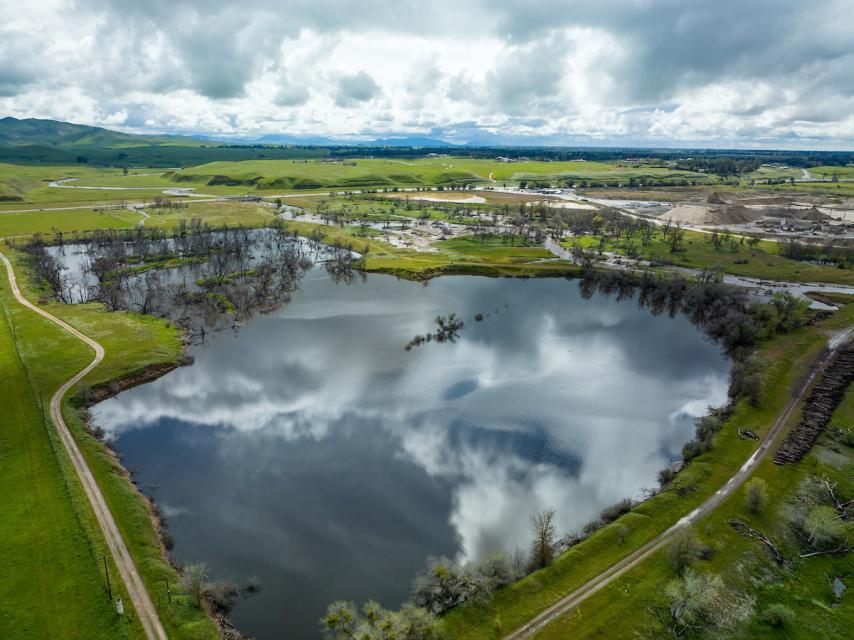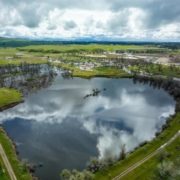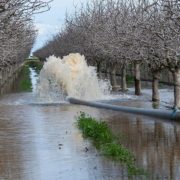A new but little-known change in California law designating aquifers as “natural infrastructure” promises to unleash a flood of public funding for projects that increase the state’s supply of groundwater.
The change is buried in a sweeping state budget-related law, enacted in July, that also makes it easier for property owners and water managers to divert floodwater for storage underground.
The obscure, seemingly inconsequential classification of aquifers could have a far-reaching effect in California where restoring depleted aquifers has become a strategic defense against climate change — an insurance against more frequent droughts and more variable precipitation. The state leans heavily on aquifers, drawing about 40% of its water supply from the ground during an average water year and up to 60% during dry years.
More than $1 billion in state funds could become available to a wide range of projects that replenish groundwater, including flood control improvements and wetlands restoration, according to the Planning and Conservation League and the conservation nonprofit River Partners, which pushed for the designation.
New law and potential funding source

A recent change in California law is expected to result in significantly more public funding for groundwater recharge like this state-run project, which diverted floodwater from the San Joaquin River to a Madera County ranch in winter 2023. Photo: California Department of Water Resources
“There’s no question this is a critical step,” said Judy Corbett, a board member of the league. “We’re not talking about [funding] one thing at a time anymore — flood control or recharge or improving wetlands — but now everything.”
The new law also positions local water managers and nonprofit groups to potentially tap Proposition 1 funds – a 2014 statewide bond that dedicated $7.5 billion for water projects – and a sweeping climate resilience bond that Gov. Gavin Newsom and lawmakers are planning for the 2024 statewide ballot.
In the world of environmental policymaking, “natural infrastructure” refers to natural landscape features that provide concrete benefits to the public and to wildlife. Wetlands and floodplains, for example, can slow and retain water to reduce flooding while filtering pollutants and providing habitat for fish and water birds.
Read entire story here: www.watereducation.org/western-water/new-california-law-bolsters-groundwater-recharge-strategic-defense-against-climate
(Editor’s note: The Water Education Foundation, an impartial nonprofit that was founded in 1977 in the midst of a deep drought, has put water resource issues in California and the West in context to inspire a deep understanding of and appreciation for water.)






